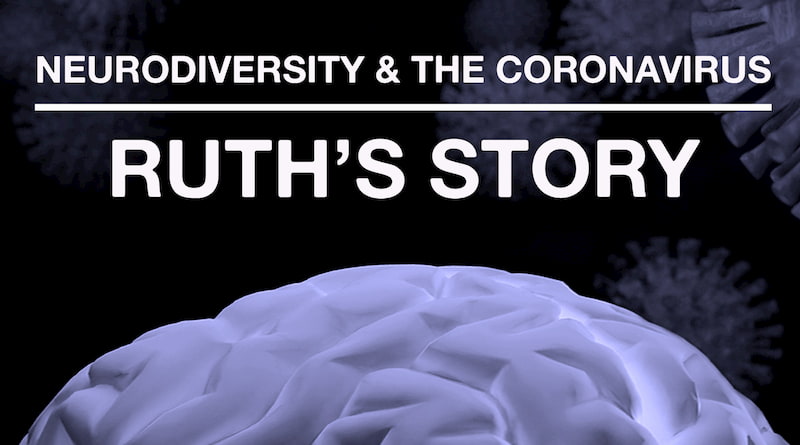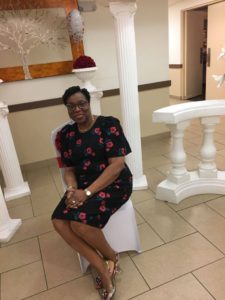
The Pandemic: ESE Specialist Ruth’s Adaption to Change
The Pandemic Ruth’s Story:
About the Author:
Dr. Ruth Hinkson is an educator with the Broward Public Schools System over the past twenty-eight years. She received her early education in her native country of Barbados. After relocating to the United States of America, Dr. Hinkson pursued her career in the field of education, obtaining her bachelor’s degree in Psychology, and master’s degree in Education from Atlantic University. She later earned her Doctorate degree in Education from Nova Southeastern University. Dr. Hinkson currently is the Specialist of Exceptional Student Learning Support at Northeast High where she also serves as department leader. She holds the title of Clinical Educator and 2018 Teacher of the Year Award for her school.
Dr. Hinkson has a passion to enhance the learning capabilities of students with disabilities and seeks opportunities to promote inclusive activities to promote their total well-being. She currently holds the title of President of Broward Alliance of Caribbean Educators, an outreach organization to impact lives and empower individuals from the Caribbean and the wider community. She is an avid reader and conducts inspirational speaking engagements in her spare time.
Being an ESE Facilitator:
Q: What is your position in the school you work at and what do you do?
A: I’m currently the Exceptional Student Educational Specialist at Northeast High School in Oakland Park, Florida. I’m also in line as the curriculum specialist for the department of the Exceptional Student Education Department. My work encompasses so many areas. My position allows me to be the case manager of the students individual education plans, monitor and evaluate their progress, and work closely with teachers, parents, and administrators, make sure that students’ specific needs are met. I also use my knowledge to help design appropriate general educational curriculum for special needs children and provide the resources to help the students who are in a regular educational setting. So, in a nutshell, I supervise and monitor students with disabilities, how they’re receiving instruction, the resources that they need, and also to work with all of the shareholders and parents. I am the go-to between the liaison, the administrators, teachers, and support facilitators. I’m there to make sure the program for students with disabilities is performed accurately and effectively into bringing out the best of our students with disabilities.
Q: What does it take to run your program effectively and accurately?
A: First of all, I attend monthly district meetings every to make sure I’m kept updated with information that needs to be communicated to everyone who work with students with disabilities. For instance, if a student is in the program for language and speech, I have to know that the speech pathologist is aware of what types of services need to be performed and what are the accommodations that the students must have. In that way, I have to make sure that there is a good understanding between what the speech pathologist knows and what the speech pathologist does in regards to the students. To make the program run effectively, my communication has to be clear and precise with accurate information. I also disseminate data to anyone who is dealing with a student with disabilities and also to check and monitor the students’ individual educational plan to see how it’s working. I also review their progress reports to see if they’re achieving their goals. I get reports from them if there are any concerns or situations that are happening that I need to address to make sure everyone is on the same level.
Q: What is the most rewarding thing about working with people that have different brains?
A: I think the most rewarding part of it is that students believe that you are there to help them. When the student sees you as their role model, they come and let you know how they feel, and they feel free to express any concerns they are having. They really think that you’re genuinely here for them and you really want to see them advance. You see them, and they see you as one who advocates and cares. The students believe in you and believe that you care, because if they don’t see that, they don’t have any trust in you. That’s a real rewarding thing for me. And then after that comes the results. Most likely, positive results. It’s a lifetime thing and you build a trust that they can carry over as they progress in life.
School Before & During The Pandemic:
Q: Describe your everyday (social) life before the pandemic hit from being an educator to your personal life.
A: Before the pandemic, I had a set routine. I had a schedule that was pretty much consistent, so I know I had to be at school from 7:15 until say 3:00 and beyond, really. I know that I have to have face-to-face meetings with parents, I have to sometimes deal with students, visit classrooms, review IEPs [Individual Education Plans], answer parents’ concerns… all those things I know are in my schedule that will occur. I’ll be going to the cafeteria as students are taking their meals. I’ll visit classrooms. I’ll be observing students while their work, sometimes I’m called if there are behavioral problems as well. Speaking to administrators, calling for information, dealing with test scores in comparison to how students are doing in class, listening to concerns from teachers or challenges teachers have, and going to the classroom to help. Those are kind of activities that I am prepared to handle every day.
[Before the pandemic,] I operated from within my office and was always available for any situation. All of those requirements are what I call “permanent activities” that will take place. You feel safe going into the rooms and you didn’t have to think about any virus issues. Normally, before the school year starts, educators go through different training like emergencies, if a student is injured and if blood is present, you have to be careful. Educators go through training as a regular procedure of something that could happen, so you didn’t have any extra fear of anything else. Sometimes when a student comes to class and you notice they have a pink eye, you call the nurse, you could call the parent to pick up the student. Medical issues do happen.However, when the pandemic came about, it was nothing but chaos and fear of so many different things that came into mind. During the pandemic, we had to face the decision of not coming to school and be at the regular building. When we were first told about it, we were concerned about what is going to happen. Some questions were: are we going to do to still be able to perform our duties? Only by technology alone? Not by seeing [our students]? Those are the kinds of fears and uncertainties, and suspicion about everything that took place after realizing that we were in a pandemic amid COVID-19 that could last a while.
A Disrupted Social Life:
My personal life was also disrupted in a sense. First, I didn’t even realize that a lot of your help came from family members. For my personal life, I had a person who used to come and take care of cleaning the house and to do some light work like cooking for me. Different things like that. I didn’t even realize that I would not have that help because of social distancing and you don’t know who’s carrying the virus. You want to make sure and protect yourself, so I had to give up that service. I then had to do duties that I wasn’t used to doing on a regular basis. That really disrupted my personal life.
Another thing is, twice a month, I would go to my sister’s house and we used to have dinner there every other Sunday. I didn’t realize that I wouldn’t be able to see my sister and spend family time with my other family members that included my son and daughter-in-law. That was a big disruption indeed.
Going to church was another big disruption that prevented me from gathering with my church family. That’s a part of my personal life that was important to me.
Reacting to the Coronavirus & Social Distancing:
Q: How did you initially react to the coronavirus and social distancing?
A: Fear, shock, disbelief, and anxiety. Fear from listening to the news because [the coronavirus] was right at our doorstep. It was deadly! We had seen what it had done as it started out in China, the devastation that it caused, and now it’s right here. Fear came out as there’s a possibility I might catch it because I did not know before, because it’s something that seems to be in your body and you don’t know until after two or three weeks. It brought in fear and sort of disbelief: could this really be happening? Is this something that is going to stay here with us? Is this going to pass by? Then, what is going to happen when you go to shop? What is going to happen if you get sick? You start thinking of all kinds of things and your life sort of flashes before you. Could it be that a family member has it and dies? Then you sort of start to say, “Okay, let’s start listening to the different areas of information. What will be my survival rate? How about my health right now? Is it able to survive this?” A lot of discomforting thoughts come into your mind. Then you think about your loved ones, then you think about your relatives, who may be living in a different country or a different state, so hearing about this conjured up many, many fears of what is going to be the outcome. Anxiety also stepped in because you don’t know. Anxiety comes about because you have that hopeless feeling. You can’t do anything. It’s here! You can’t see it, so it’s whenever you don’t feel as though you have control, then you start having those anxious feelings. I just can’t determine… I can’t just get up and say it’s going to go away.
[For the social distancing] that was a really hard one. You first start with your family members. You’re not going to be able to really be with them. Most of the time when we meet, we hug. I didn’t realize how much we take that for granted. When you hear the doorbell ring and they come in, you rush to the door and hug them. Then you sit at the table, you brush at each other, you joke with each other, and touch each other. The social distancing stopped all of that. I didn’t realize that that was such a connection of building a relationship… it was all gone in a moment. They can’t come to your house and you can’t go to their house… that was very hard. Also, with your neighbors, sometimes you’re outside and you see them. You can’t stand outside and talk with them anymore. That also was very hard. I know during this time, it was Mother’s Day and it was so heart-wrenching when my son came. He was wearing a mask, I was wearing a mask, he came inside but he was in one part of the room and I was on the next part. It was very emotional. Those are the kind of things that were really challenging. However, it was comforting to know that we care for each other so much and we didn’t want to spread anything or cause anything, so we look at it as very positive for us. We had to get comfortable with the way we have to see each other and greet each other.Teaching: From In-Person to Online:
Q: What was it like teaching your students online?
A: The most challenging thing was having virtual IEP meetings. That involved a lot of participation from different people. It involved having the parents online, students online, teachers online, and support providers online so as to have a meeting. It was quite challenging to fit all of those people into the time slot because I found that the parents were thrusted into this novelty of having meetings online like this. Sometimes, it was difficult for them to readily operate the technology to come into the meetings. That was challenging. Then we had to have the time to do this. What is the best time, because sometimes, the parents still had to work? Some parents are at home but they still have to help their other children… it was really hard to find time that everyone could be online. Before, when you were at a location in school, we had enough time to call them up on our plan and tell them this-and-this, and they could arrange, but this was so sudden, that we didn’t have time. Another challenging thing was to move everything online. Everything had to be written out, because if you meet, you can talk and explain, but everything had to be really on time in a confined manner… it took a lot more time to put everything together and it was very time-consuming.
Some of the benefits of teaching online is you get to learn a lot more things that you didn’t get to learn and they can be accomplished. You really improve on your technology skills. That was a really good benefit for me, and to learn a lot of different strategies, different information out there. Information that was really helpful. Different programs out there. Then you were exposed to many different practices by many different people from different school systems. You learn a lot of information from a lot of different teachers that you would not have necessarily seen. The learning was VERY beneficial. I learned a lot during this time that I wouldn’t necessarily have known of. My vision was expanded.
Coping With & Adapting to COVID-19:
Q: What did you have to do in order to adapt to these circumstances?
A: One of the things I had to open my mindset to was being prepared to accept this is the way of life. Therefore, I exposed myself to training. I look to see what kind of training is offered for different areas and I go to the training on online webinars. Not only that, but I ask questions and participate in order to get through. I know I definitely had to learn quickly. Anything that would help me to get through, I tried to expose myself to and learn… I need to research and see what is out there to help me. I had to adapt to change. I have to stay online sometimes until 6:00 in the evening if they’re offering some training. I had to be flexible to learn. I changed some scheduling. If I can’t be set in my ways and say, “Okay, my lunch time is from this time to this time, if a training is coming through this time,” I put myself to do that. You need to work with it, you know? Change your schedule and things like that.
Q: What coping mechanisms are you using to deal with these strange times?
A: Quite a few (laughs). First and foremost, I pray a lot. I find that praying is a matter of getting into the spiritual and making sure that I have a connection with God because that’s where I get strength from. I get the ability to look beyond what is happening and to see hope, so I pray a lot. I read a lot of books that help me stay positive. Anything I find has meaning, I put myself to researching about it. Staying in regular communication with my family and friends, talk, share good times together, laugh. Those are the kinds of things that help me to cope. Eating healthy and making sure that my immune system is up to par. I know a lot more about the immune system now than I ever did know and what are good foods and things to help your body. Now, I think I’m so educated in those areas (laughs). And, keep exercising. Also, to watch good shows. Shows that make you laugh and make you think of something different than COVID-19. I give my brain a break from the virus information and turn to something that takes my mind off of it in a positive manner. I do all of those things and stay busy.
Important Life Lessons:
Q: What have you learned about the world around you and about yourself during these circumstances?
A: I learned that I can adapt for survival. I can reject some things. I can live without some things. Sometimes you feel you cannot live without some things, but yes you can. I have learned I’m not that set person that cannot learn. You have the ability to use whatever you find around you to help you survive. Sometimes you think, “Oh, I need to have this, I need this in order to survive”, and now I realize some things that we think we need to survive, we don’t. We can improvise. We can use what we have to make it work for us. I’ve learned that sometimes, you have many things that you can adjust to make it work for you. You definitely can survive.
Q: What advice would you give to someone having a difficult time dealing with the coronavirus?
A: My advice is, number one: keep informed. Know what is going on but filter out unwanted fears or information. Too much information is just as bad as no information. Limit the information you are absorbing, especially when the information really seems negative or depressing. You have to know at what point to shut off and you have to know at what point to take breaks because your mind cannot absorb an overwhelming load of very negative or sad information. You have to be able to take breaks during these circumstances. One great thing that you can do is to create a journal because a journal will allow you to release your mind from holding in all of that information. It also allows you to express yourself and allow yourself to really analyze the information because sometimes, when you’re absorbing, you don’t really analyze. You’re just absorbing. When you start to do journal writing, you’re able to figure out some things, see some things that probably you can figure out in a sense that it’s not really real. It also allows you to reflect on what is happening and help you throughout. Creating a journal through this time is a good therapy. Also, look for something positive every day… Take care of you and what you bring into your mind… Trust God and look forward to the best results… Use common sense and be wise.
Story by: Ruth
Transcribed by: Julia Futo
Interviewed on: June 2nd, 2020
Julia Futo was born on August 5th, 1999, in Fort Lauderdale, Florida. She faced difficulties early on in life with trying to perform everyday tasks. Before she was five years old, she was diagnosed with two learning disabilities: Encephalopathy and developmental coordination disorder (DCD). She struggled in school for a long time, but that changed when she took journalism in high school and learned how to become an advocate. She is currently in college and hopes to help others find their voices.





